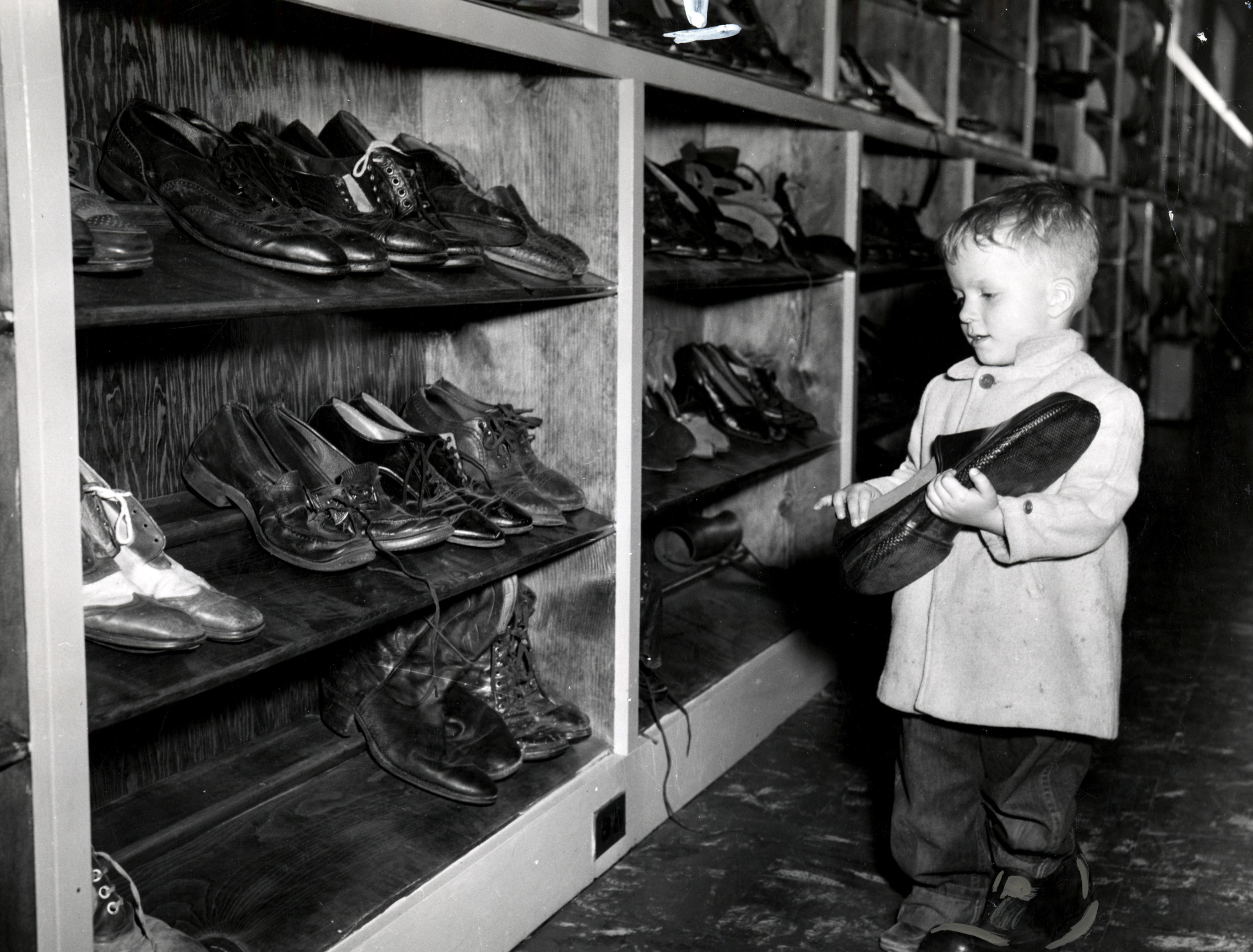This week, Deseret Industries celebrates 75 years of operation with the opening of its newest store in Sandy, Utah. Though much has changed in the thrift stores over the years, their purpose and mission have remained constant.
In 1936, as the United States began its climb out of the Great Depression, The Church of Jesus Christ of Latter-day Saints established a welfare program to help provide food and fuel to those in need. Two years later, unemployment was still high, and many could not afford to buy clothing or household items.
Church leaders wanted to do more. When they learned that Goodwill Industries in Los Angeles was providing jobs for the unemployed by taking in donated goods, then refurbishing and selling them, they asked Church member Stewart Eccles to go to Los Angeles, study Goodwill Industries, and make a report.
- Deseret Industries
- Deseret Industries Sack 1930s
- Deseret Industries Anniversary Storefront
- Deseret Industries Anniversary Boy
- Deseret Industries Anniversary Ogden truck
- Deseret Industries Anniversary Motors
- Deseret Industries
- Deseret Industries Anniversary Clothing
- Deseret Industries
- Deseret Industries
- Deseret Industries
- Deseret Industries Anniversary Logan Truck
- Deseret Industries Anniversary Donation Truck
- Deseret Industries Anniversary Man
- Deseret Industries Anniversary Bike Repair
- Deseret Industries Anniversary woman
| Temple Square is always beautiful in the springtime. Gardeners work to prepare the ground for General Conference. © 2012 Intellectual Reserve, Inc. All rights reserved. | 1 / 2 |
Soon after his trip, in May 1938, Eccles was asked to lead a new Church operation designed to provide both jobs and low-cost goods for members in need. The first Deseret Industries plant opened in downtown Salt Lake City on 12 August 1938, with Eccles at the head and Holger M. Larsen as his assistant. After collection drives in the area, they made their first retail sales on 1 September 1938.
Thus was born Deseret Industries, described in an August 1938 letter to local Church leaders as “essentially a salvaging project in which useable materials … are solicited from each homeowner within our communities. This organization will make periodic collections … and employ … men and women workers to sort, process, and repair the articles collected for sale and distribution.”
Potential workers were referred to Deseret Industries (D.I.) facilities by their local Church leaders (bishops). The D.I. stores also served, as they do today, as storehouses of clothing and household items for those in need. Bishops continue to refer families to the stores to receive goods and recommend workers for employment training. One does not have to be a member of the Church to receive assistance.
Deseret Industries would eventually expand to locations across the western United States — 42 in 2013. Though the thrift stores have changed much in appearance and operation over the years, their purpose has remained the same: to provide employment and goods to those who need them.

Reflecting on the organization’s operations in 1958, 20 years after its founding, Eccles noted that the refurbishing of donated goods was less important to Deseret Industries than its efforts to rehabilitate those needing employment or job training. Unlike almost any other workplace, the D.I. does not seek to retain workers but to help them move on to permanent employment in their chosen field.
That’s because the D.I. isn’t a business; it’s a service organization. The revenue generated by sales goes toward training workers and program operation. Last year, Deseret Industries accepted some 8,600 associates, including hundreds of refugees, into its training programs. The average time associates spend in the program is 39 weeks.
Donated clothing remains in D.I. stores for about six weeks, then unsold items are sorted and shipped to those in need around the world. In 2012, more than 17 million items were distributed. Deseret Industries has also established working agreements with 567 other charitable agencies throughout the western United States to distribute goods to those they serve. About 50,000 people each year are referred to the D.I. by these organizations to receive merchandise free of charge.
President Henry B. Eyring, first counselor in the First Presidency, spoke of those who come to Deseret Industries for assistance: "Often those who come here have journeyed through dark valleys of suffering and distress, persecution and failure. No matter the path they have walked, here they are offered safety and blessed hope — a place of understanding, nurturing, and encouragement.
"Our Heavenly Father’s work and glory is the great and wondrous process of transformation. He takes imperfect souls and, through the principles and commandments of the gospel and through the intervention of the Spirit, transforms them into beings of unimaginable glory and immortal destiny."https://mormonnewsroom.org/article/di-opens-new-utah-store-75-years